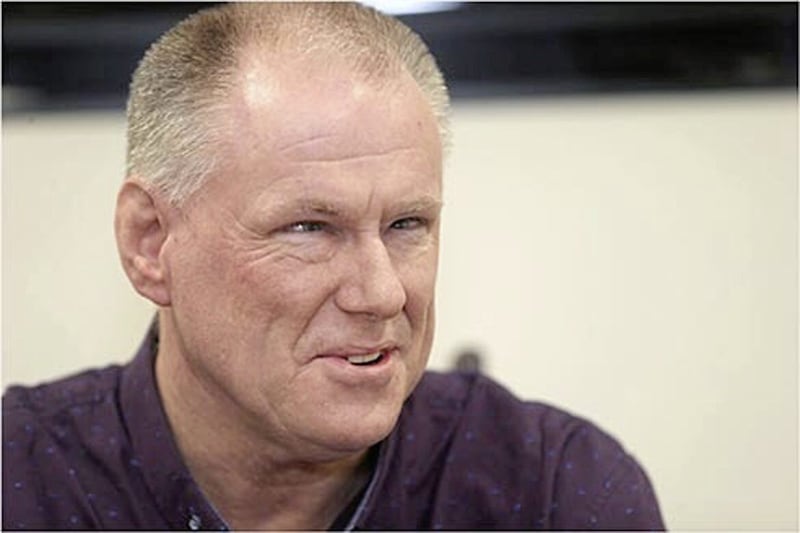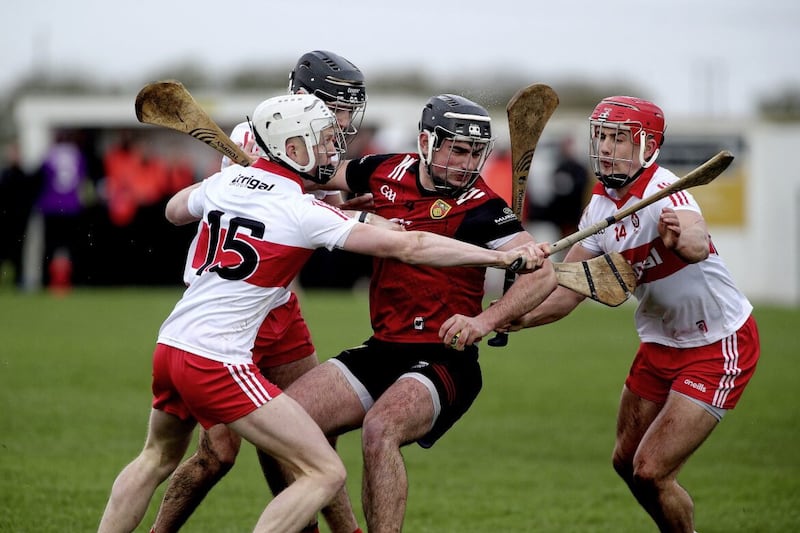GAA leaders have been accused of “censorship” after a traditional music band due to play at an Ulster championship clash between Derry and Donegal was forced to withdraw due to its support for Palestine.
Irish traditional band Saoirse don Phalaistín, which means Freedom for Palestine, has been a regular feature at Derry home matches at Celtic Park.
The group can often be seen entertaining crowds at half-time during games at the Derry city-based GAA ground.
However, it has now been claimed that ahead of a crunch meeting with Donegal, the band was contacted by Ulster Council chief executive Brian McAvoy who insisted it could not play under the name Saoirse don Phalaistín.

It is also claimed Mr McAvoy told the band it could not display a Palestinian flag or make any references to Palestine.
Around 34,000 Palestinians have been killed in Gaza by Israeli forces since last October.
Israel’s operation was launched after around 1,200 people were killed during a Hamas-led attack inside Israeli territory last October, during which around 200 hostages were taken.
Saoirse don Phalaistín’s Gearalt Ó Mianáin said he was “astounded” by the request from Mr McAvoy, who is the GAA’s most senior figure in Ulster.
He claims that when he asked for the reasons behind the request Mr McAvoy said “the GAA must be apolitical”.
Mr Ó Mianáin said he highlighted that children from conflict-torn Ukraine were invited to bring the Liam McCarthy cup onto the field at the All-Ireland hurling final.
In a letter to GAA president Jarlath Burns and senior Ulster Council figures Mr Ó Mianáin said he found it difficult to “reconcile the position being adopted by the GAA in respect of the ongoing humanitarian crisis in Gaza”.
He said the request from Mr McAvoy gave him two “sleepless nights” but after “reflection and consultation with the other band members” they had “no other choice but to withdraw our services”.
He claims he told Mr McAvoy that “we would not play under such conditions that are repressive and go against the spirit and values of the organisation”.
The band is now demanding to know the “rationale and the policy basis” for the decision to impose conditions.
The GAA has also been asked to explain “the disparity in respect of their approach to particular conflicts”.
Mr Ó Mianáin said he has been involved with the GAA for 40 years for both club and county.
“The GAA was founded by the people to preserve our distinctive culture and values and it belongs to the people,” he said.
“I am therefore extremely concerned at the censorship being imposed on us as GAA members in respect of this issue and have serious concerns about the erosion of the ethos and values of the association.”
A spokesman for the GAA said: “The GAA is non party-political per its rules and in this instance the name of the band was political, aligning as it did to a particular cause.
“The rule does not prohibit members from holding particular political views, nor does it prohibit humanitarian relief efforts by the association or any of its units.”








